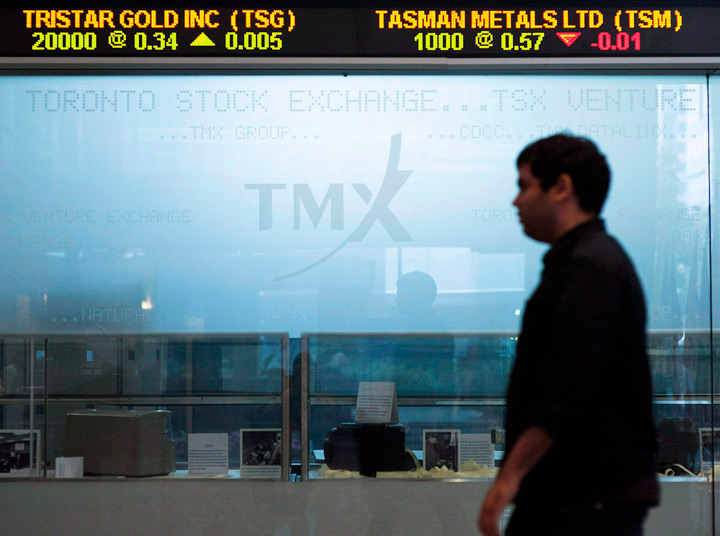As the stock market tumbled Monday, Conservative leader Stephen Harper again told the press that Canada is facing an “unstable global economy” and his party is the one that can be trusted to manage it.

“Given the challenges around us, we need to stick with a long term plan that has been working and will work,” he said, calling other parties’ policies “clearly damaging.”
But how much does Harper deserve the praise – or the blame – for Canada’s economic performance during his tenure? Not as much as he’s been getting, said Nicholas Rowe, associate professor of economics at Carleton University.
READ MORE – Harper attacks opponents’ ‘clearly damaging’ policies as stock market tumbles
“Most of the things that happen aren’t due to what politicians do. It’s due to something else,” he said.
“Unless they do something obviously stupid, they don’t have that much influence over things. And even if they did, it might be sheer luck. We don’t really know if what they’re doing worked or if it’s something else and they just got lucky because they were doing it at the same time.”
It’s the Bank of Canada that has the strongest influence on the overall performance of the economy, not the government, he said. In a deep recession, where interest rates are close to zero, the government could make a difference, as it did, by increasing spending and lowering taxes, but overall, he thinks the Bank of Canada will keep the economy the way it wants it by adjusting monetary policy.
So when it comes to Harper’s performance during the 2008-2009 recession, “Can I think of anything truly heroic and brilliant that he did? No,” said Rowe.
“Let’s just settle for he didn’t do anything stupid. It’s a hell of a good start.”
Don Drummond, former chief economist at TD Bank and currently a scholar with Queen’s University’s School of Policy Studies, agrees that government policy isn’t the biggest factor in how the economy does.
“If you pull out a standard first-year economics textbook, they will have a chapter on small open economies. And that’s Canada,” he said. “We’re the quintessential small open economy so we tend to go where our major trading partners go, and historically that’s been almost uniquely the United States.”
Canada’s recessions and output changes tend to closely track the United States’, he said. Even during the recession, Canada’s fiscal stimulus package closely mirrored those of other G20 countries, as it was a collective decision made at the time, he said.
But unlike Rowe, Drummond does think that government policy can have a strong effect on the economy, even if it’s not the biggest factor. Rather than tracking our trading partners’ performance, Canada could beat them, he said.
“In theory somebody with the right policies could make us all better off and somebody could sure muck it up with the wrong approach.” It’s happened before, he said, even if the Canadian economy has stayed close to the American economy since the mid-1990s.
Ballot question
The economic debate could have a big effect on the election, even turning into a ballot question if bad signs keep cropping up, said Darrell Bricker, CEO of Ipsos Public Affairs, a polling firm.
A recent Ipsos poll for Global News showed that economic issues were top-of-mind for Canadian voters.
READ MORE: Cost of living, economy among most important issues in upcoming election says new poll
And, Canadians saw the Conservatives as the best economic managers, eight points ahead of the NDP. So, economic turmoil could be good news for Harper, said Bricker.
“You would think that it’s somehow to his advantage. But given that he is the government, he is the incumbent government, and what’s happening in the Canadian economy is somewhat reflective of his policies, you wonder if that is going to give people confidence or if it’s going to tell them it’s not working.”
Naturally, opposition parties can be expected to lay as much blame as possible on Harper if things get worse.
What will matter is how Harper presents his record, he said. “The truth is that his economic record is the thing that he brags about. But every day a little bit fritters away. So what he has to do is he has to sell his risk management skills. It’s a very delicate balance between saying, there is a risk and I’m best able to manage it, but what I’ve done so far hasn’t corrected it. I’m not making it worse.”
But should Canadians choose their next government based on their history of economic management? “Go base your vote on something else,” said Rowe.
Drummond disagrees, saying the right policies could make a difference. “I still think the potential is there. We know from history you can really screw it up. Lots of governments have done that.”





Comments